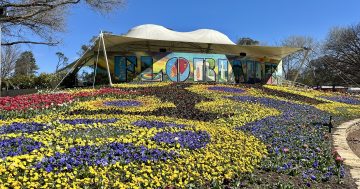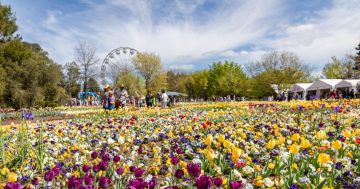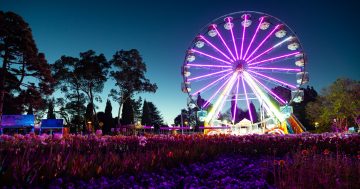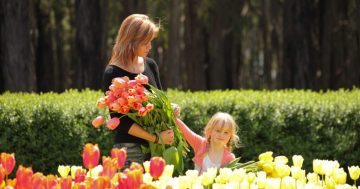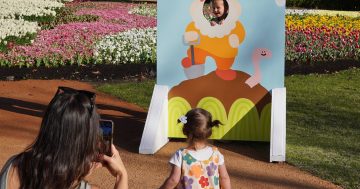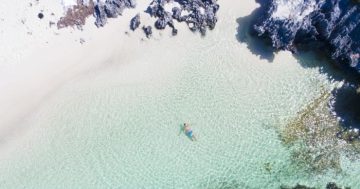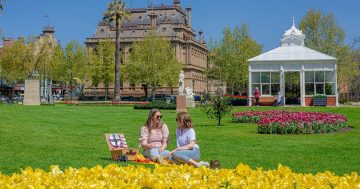By Rama Gaind.
Some good and bad news about the nation’s capital – related to travel. While Canberra has received another acknowledgement of merit, Floriade – the annual festival of flowers – has been cancelled this year.
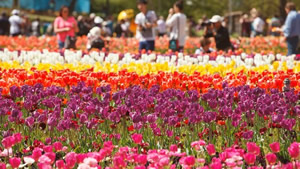
Floriade 2021 has been cancelled with the ACT in COVID-19 lockdown.
‘Australia’s celebration of spring’ was also called off in 2020 – for the first time in the event’s 32-year history. Floriade represents one of the biggest events on the calendar for the ACT tourism sector.
Floriade 2021, scheduled to run from 11 September to10 October in the ACT, has been called off as a large-scale event due to the COVID-19 lockdown. Nightfest will also not go ahead. Instead, Canberrans will still be able to enjoy bursts of spring colour throughout the city and suburbs, with more than 400 planter boxes and pots destined for Commonwealth Park being redistributed throughout the community.
The boxes and pots, containing over 60,000 blooms, will brighten the city and supplement the 300,000 bulbs and annuals already planted by schools, community groups and organisations as part of Floriade Community.
The annual theme, flower and entertainment festival used to be held in Commonwealth Park featuring extensive displays of flowering bulbs with integrated sculptures and other artistic features.
Floriade started in 1988 as a massive one-off display of bulbs and annuals – flowers that are suited to Canberra’s extreme temperatures. It had become the largest flower festival in the southern hemisphere.
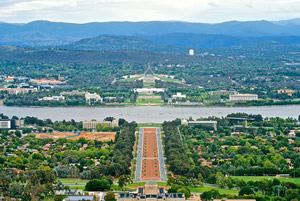
Canberra has been rated the best city in the world to get a good sleep.
A major drawcard for ACT tourism, the local hospitality and tourism sector will be left reeling – again – as a result of the cancellation. It will cost the ACT economy tens of millions of dollars in lost tourism revenue.
Floriade is believed to have contributed more than $44 million to the ACT visitor economy in 2019.
Winning tribute
Meanwhile, Canberra has been fortunate in winning some pretty convincing accolades in recent years. The latest ‘crown’ sees Canberra being rated the best city in the world to get a good sleep.
The cities where you get the best shut-eye, according to a Lenstore report, was dependant on a range of factors including temperature and air quality. Canberra scored a perfect 10 for noise and light conditions and almost 10 for air quality. While average temperatures are presently 3.35 degrees above the ideal 18.3 degrees,
The report found “the Aussie capital ranks best of all locations for its lowest amount of night lights and noise pollution, which has a score of 80.82 out of 100”.
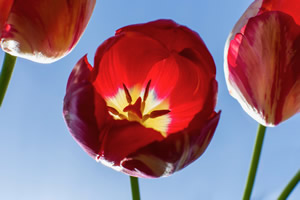
Floriade is believed to have contributed more than $44 million to the ACT visitor economy in 2019. It was also cancelled in 2020.
“This is over double compared to the likes of Mexico City with a score of just 35.65 out of 100. The air quality in Canberra is also the third-best in the world, second only to Wellington, New Zealand, and Bern in Switzerland.”
Vienna followed by Luxembourg and Jerusalem were the next best cities in which to get a good sleep. The worst city in the world to get a decent sleep was the US capital Washington. Other hard-to-sleep cities included Santiago, San Jose, Warsaw and Paris.
The report found on average, a person sleeps for six hours and 54 minutes per night. The time we should be getting is a full eight hours.
Sleep is fundamental to our health and wellbeing, according to international sleep expert Dr Katharina Lederle. In her book Sleep Sense (Exisle Publishing), she draws on the latest research to explore how sleep is connected to each of the three pillars of successful living: physical health, cognitive performance and emotional wellbeing.
In addition to being the best city in the world to get a good sleep, Canberra beat Sydney and Melbourne to be named one of the world’s top 10 cities to visit in 2018. The capital featured in Lonely Planet’s Best in Travel 2018 list, ranking third in the Top 10 cities section – the highest ever listing of an Australian city in the publication.
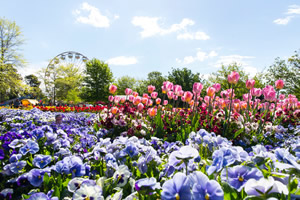
Canberra’s popular annual flower show, Floriade, has been cancelled this year, but everyone will still be able to enjoy bursts of spring colour throughout the city and suburbs.
In 2019, the realestate.com.au/Ipsos poll once again crowned Canberra as Australia’s No 1 most liveable city for the third consecutive year. The survey was significant because it’s based on the opinions of residents rather than ‘experts’.
Economic woes
Tourism in Australia is a driver of growth for the Australian economy, but the closed borders are costing the financial system millions of dollars a day.
According to figures from the Australian Bureau of Statistics, COVID-19 has affected tourism in Australia. In the year to the March quarter 2021, tourism-filled jobs fell by 5.1 per cent.
Statistics from Tourism Australia show in the year ending June 2021, total international arrivals reached 150.9 thousand visitors, a decrease of 98.4% compared with the same period the previous year.
The World Tourism Organization reported that never before in history has international travel been restricted in such an extreme manner. Global tourism suffered its worst year on record in 2020. There were one billion fewer international arrivals last year than in the previous year. From flight suspensions to border closures, the massive shutdown has cost countries billions of tourism dollars, airlines have lost revenue and millions of people have lost their jobs.
As a result, the tourism industry has been turned into one of the largest casualties of the Coronavirus outbreak.
DETAILS BOX


